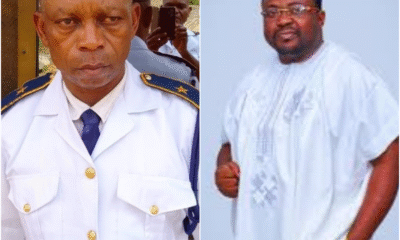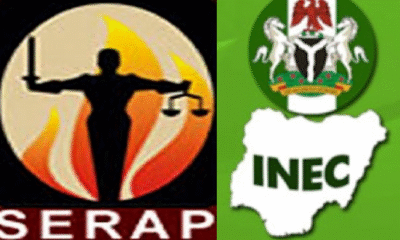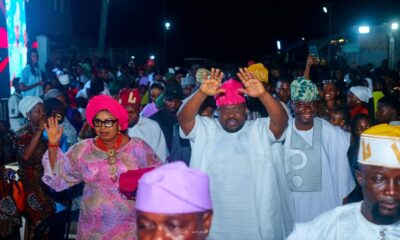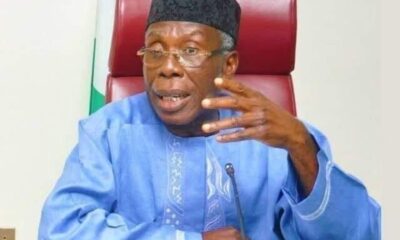News
Why INEC Sets Campaign Donation Limit To N50m

The Independent National Electoral Commission, INEC, has given its approval for the printing and distribution of the regulations for the conduct of political rallies, processions, and campaigns as well as those for the finances and election expenses of political parties, candidates, and aspirants.
The maximum sum of money or other assets that an individual, a group of individuals, or an entity may donate to a political party or candidate for office is therefore N50 million.
Political gatherings cannot be held in places of worship or government buildings, according to INEC.
“The maximum amount of money or other assets that an individual, a group of individuals or an entity can donate to a political party or aspirant for an election shall be N50,000,000 (fifty million Naira only).
“A Political Party shall not accept any monetary or other contribution which is more than N50,000,000 except it identifies and discloses the source of the contribution to the Commission”, the document stated.
According to INEC, contributions to candidates must be made between the start of the 150-day campaign period and election day, while contributions to aspirants must be made from the date the election notice is published and the end of the Party Primaries.
The Electoral Act of 2022 stipulates that a candidate’s election expenses may not exceed such restrictions, according to INEC (as amended).
“The election expenses of a Political Party shall be in three parts: for the management of Aspirants and Party Primaries; for the administration of Candidates and conduct of elections; and, for miscellaneous election expenses,” the commission states.
READ ALSO: Ipaja-Ayobo, One Neigbourhood With A Myriad Of Challenges
According to INEC, a Political Party’s election expenses for managing Party Primaries cannot exceed two-thirds of the maximum amounts allowed for candidate expenses under the Electoral Act of 2022 for the relevant elective posts.
A Political Party’s election expenses for conducting elections are also limited to two-thirds of the maximum election expenses allowed for each Candidate times the number of Candidates the Political Party will support in a specific election for elected seats.
The commission specified that a political party’s “miscellaneous election expenses shall include, but not be limited to: Pre-election cases against the party; Post-election or election petitions; Re-mobilization of Party members following elections.”
It also stated that each political party must provide a hard copy and an electronic copy of a detailed annual statement of their assets, liabilities, and analysis of their funding sources and other assets, as well as a breakdown of their spending from January 1 through March 30 of the following year, to the Commission.
When it comes to contributions from abroad, INEC mandated that each political party notify it and deposit any money or other assets received from outside of Nigeria to the Commission within 21 days of receipt.
The statement continued, “Where necessary, the Political Party shall provide such information as may be required by the Commission.”
The commission has also established a portal through which each political party that is sponsoring a candidate’s election must submit to the commission, within three months of the release of election results, a report of the donations made to it by people and organizations.
According to INEC, the report must include the donors’ names, residences, occupations, and the sum of money they have given.
“No political rally or procession shall hold in sites designated as religious centers, police stations, and public institutions,” INEC stated in regards to political rallies.
“Abuse or any other type of hate speech is not permitted during political gatherings or processions.
The electoral umpire further stated, “Physical force or coercion by organized groups or individuals shall not be used at political demonstrations or processions.”



























